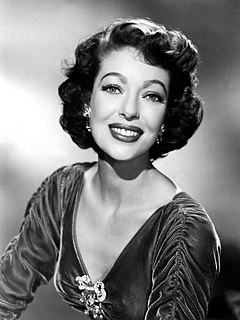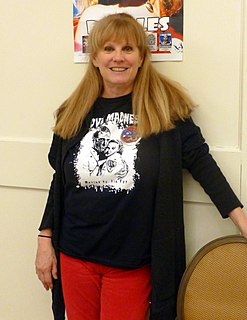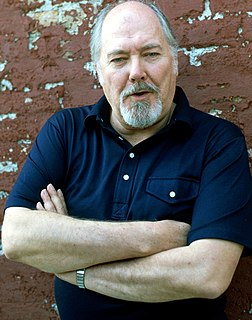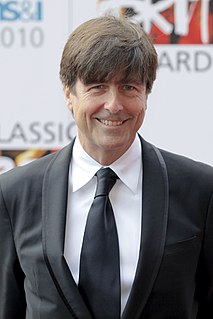A Quote by Gene Tierney
Joe Schenck, a top 20th Century-Fox executive, once said to me that he really believed I had a future, and that was because I was the only girl who could survive so many bad pictures.
Related Quotes
I once visited an RSPCA hospital in Norfolk. I spoke to the vets working there, and asked them how many times they had had to treat a fox that had been brought in with a shooting injury. The answer from a vet who had worked there for many years was, Not once. When I asked him why, he said,You can take it from me that when the fox is shot in the countryside by somebody trained, it is dead.
I was really interested in 20th century communalism and alternative communities, the boom of communes in the 60s and 70s. That led me back to the 19th century. I was shocked to find what I would describe as far more utopian ideas in the 19th century than in the 20th century. Not only were the ideas so extreme, but surprising people were adopting them.
Joe Roth, who ended up becoming president of 20th Century Fox, he was the producer of Our Winning Season. This was one of his first movies. It's just a really great, great little film, a lot of good people in it. I don't know whatever happened to that movie, and why it didn't get the success it deserves.
[Make a sitcom] was really the idea of Executive Producer Joe Roth who owned the property over at Revolution Studios and said he was thinking about taking it to TV. And after he said that he already had [writer/director] Ali Leroi on board, and that he was going after Terry Crews, to me it was a no-brainer. I said, "Let's put this together!"
Lee Marvin was there at the same time, and I knew obviously it was his movie [Emperor Of The North], and Ernie Borgnine was playing the other part in the movie.I met Marvin there at wardrobe, and he said, "What are you doing for lunch?" I said, "Nothing." He said, "C'mon with me!" And he took me to the commissary. I walked into the commissary with Lee Marvin at 20th Century Fox, and he introduced me to people. He said, "This's Keith Carradine. We're doin' this movie together." He was so cool. I mean, my God.
So the little prince tamed the fox. And when the hour of his departure drew near-- Ah," said the fox, "I shall cry." It is your own fault," said the little prince. "I never wished you any sort of harm; but you wanted me to tame you . . ." Yes, that is so," said the fox. But now you are going to cry!" said the little prince. Yes, that is so," said the fox. Then it has done you no good at all!" It has done me good," said the fox, "because of the color of the wheat fields.
To survive, China had to open up to the West. It could not survive otherwise. This was after many millions have died of hunger in a country that was like North Korea is today. Once we became part of global competition, we had to agree to some rules. It's painful, but we had to. Otherwise there was no way to survive.
In the 20th century, we had a century where at the beginning of the century, most of the world was agricultural and industry was very primitive. At the end of that century, we had men in orbit, we had been to the moon, we had people with cell phones and colour televisions and the Internet and amazing medical technology of all kinds.




































